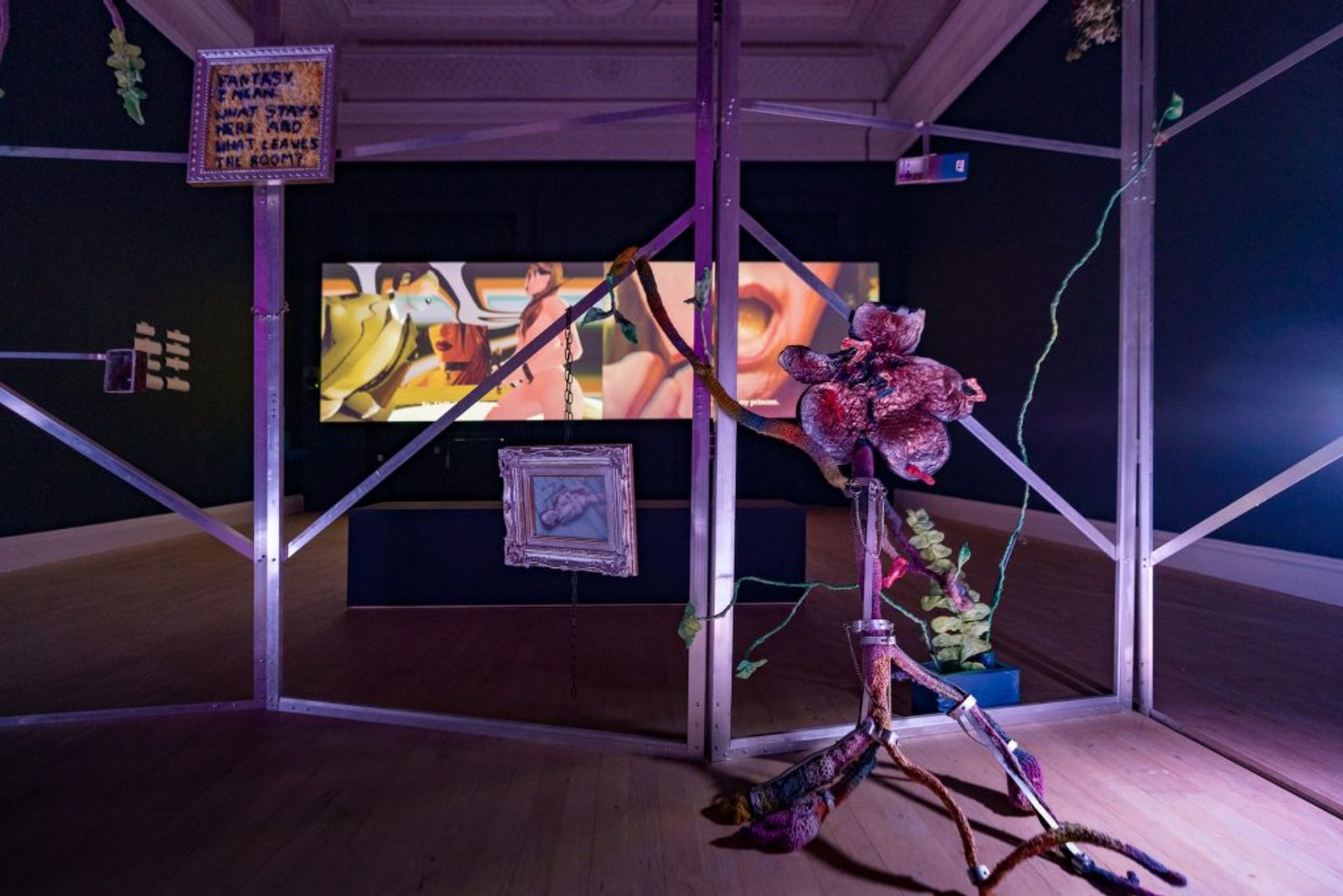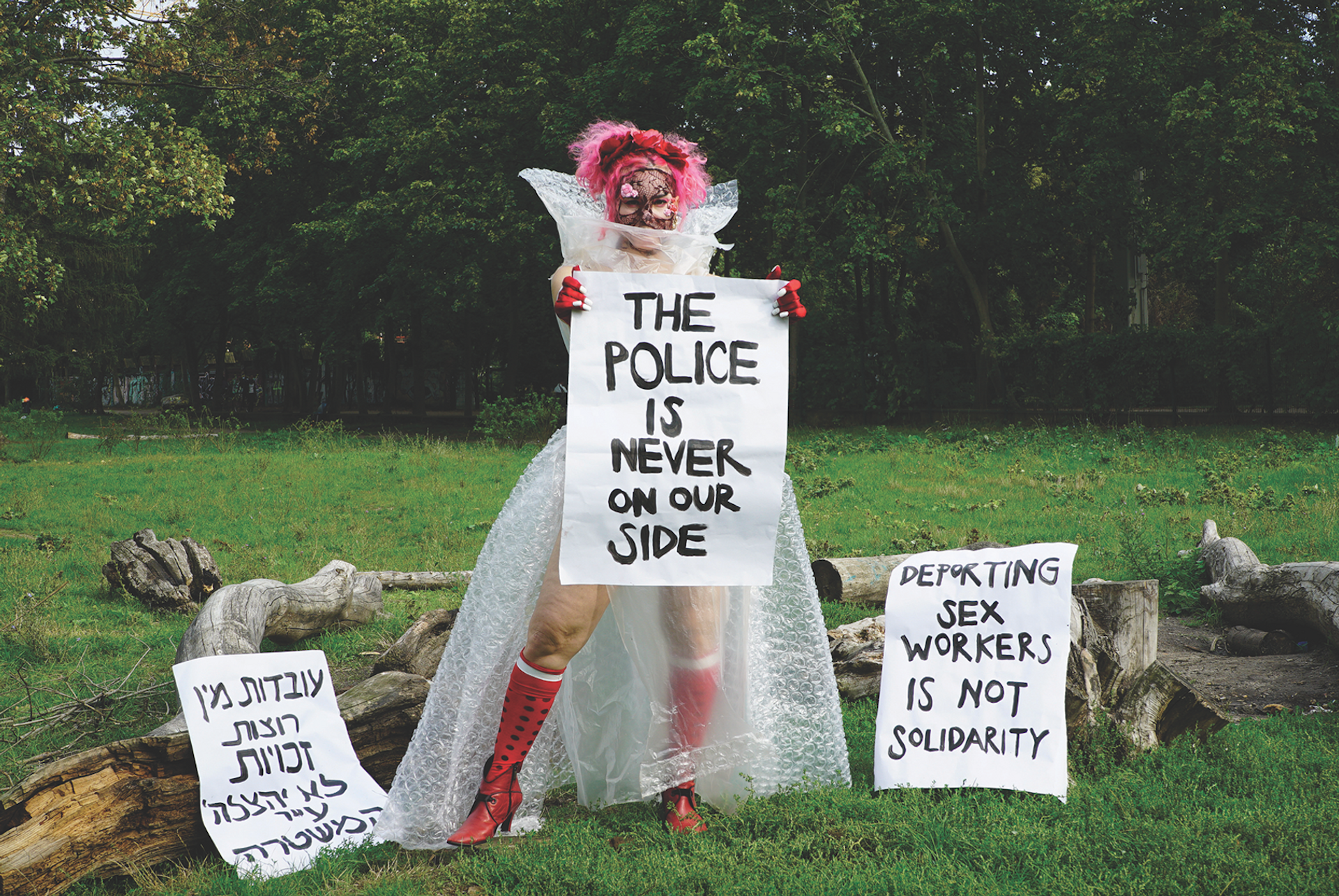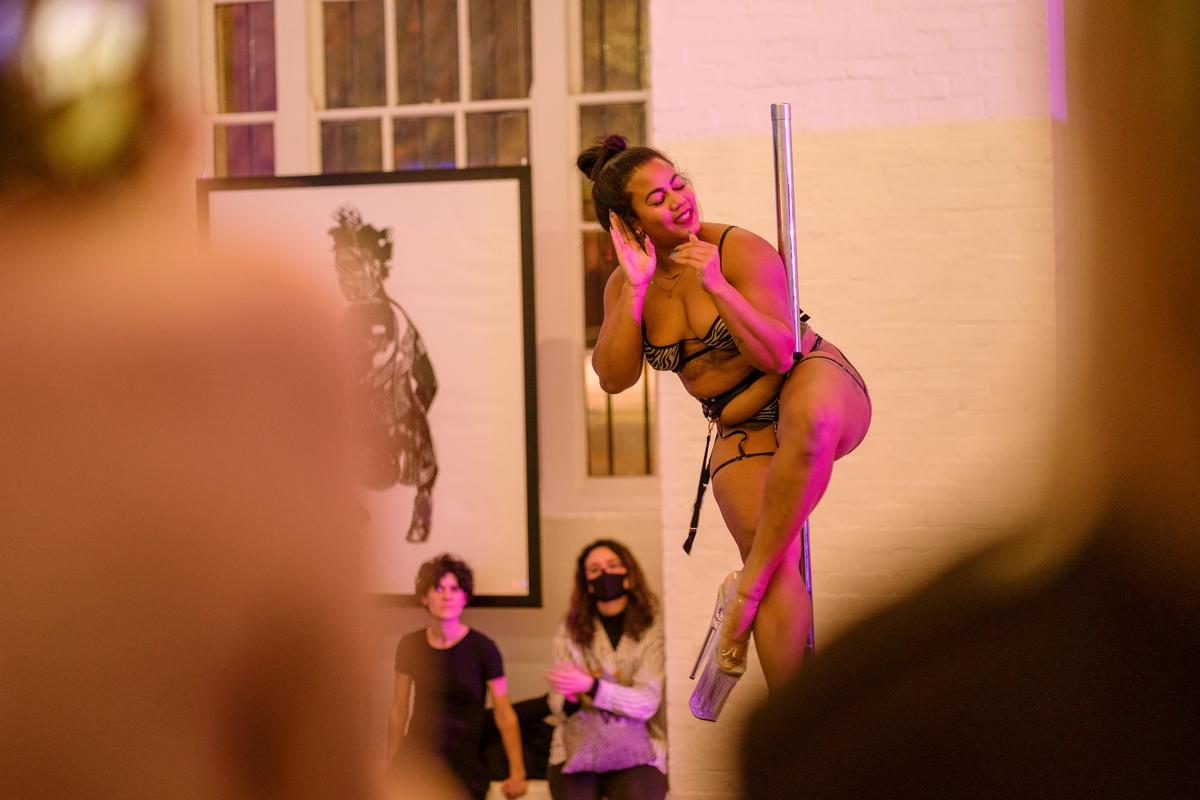In 1948 Herbert Read, art grandee and co-founder of London’s Institute of Contemporary Arts (ICA), wrote in the catalogue for the institution’s first show that he wished for it to be “an adult play-centre”.
More than seven decades later, I can confirm his wish has been duly fulfilled after witnessing the virtuoso pole dancer Lauren Elise, balanced on vertiginous platform stilettos, strut her stuff in the middle of the institution—a first even for the ICA’s history of risqué shenanigans. But this playful action came with serious intent: Elise’s raunchy gyrations marked the launch of Decriminalised Futures, an exhibition inspired by the sex worker rights movement.

Installation view of Decriminalised Futures. Photo: Anne Tetzlaf
This ambitious group show brings together 13 artists from the UK, France, Germany and the US—most with personal experience of the sex industry. Their work, ranging from moving image to gaming, graphic novels, linocuts, embroidery and sculpture, addresses the acute need for contemporary sex workers to have their work decriminalised. It also demonstrates how this struggle intersects with wider themes of racial and social justice, migrant and labour rights, feminism, and queer and trans liberation.
As Elio Sea, one of the show’s curators says, “The sex worker rights movement is so important to be part of, regardless of whether you have a personal experience of sex work, because it’s the point at which issues around disability, race, gender and migration meet each other and explode.” To this end, the art is also interspersed with a series of listening stations playing recordings from the wide-ranging discussions that took place at a 2019 festival, also called Decriminalised Futures, hosted by the UK based collective SWARM (Sex Worker Advocacy and Resistance Movement).
The show opens with Aisha Mirza’s bittersweet installation in which a cosy reception area, furnished with a pink fluffy rug, cushions, house plants and sex toys is overseen by a wall of domination apparatus and poster-sized text that memorably declares, “the best dick I ever had was a thumb & good intentions”. Less welcoming is the oppressive red environment in which Tobi Adebajo has installed three videos housed in curtained kiosks to examine themes of disability and desire, care and consumption framed within Yoruba traditions. Throbbing bass, an ominously vibrating cooking pot and fleshy ceramic fragments attached to the walls all add to an uncomfortably ambiguous atmosphere infused with a whiff of violence.

Performance artist and musician Liad Hussein Kantorowicz’s film Mythical Creatures focuses on the story of the Argaman Alliance, first sex worker organisation in Palestine-Israel; while another confrontational piece is Yarli Allison and Letizia Miro’s moving image work that splices animation and documentary-style footage to occupy the mind of a fictional client in search of the ideal sex worker.
There’s much pain and anger in this show, but also joy, humour and defiance. In each of a trio of life-sized linocut self portraits, Khaleb Brooks strikes a pose and magnificently counters any predatory gazing with a defiant stare and the take-no-prisoners subtitle, “What Chu Lookin at Ho?”
More respite is to be found in Still Life for Sex Workers, a small, vivid autobiographical embroidery by Hanecdote, an artist and sex worker with chronic pain who here depicts an array of empowering talismanic objects, including a stack of books marked with such affirmative titles as Action, Community, Recourses and SWARM, positive notions of succour.
Decriminalised Futures is the latest in a recent line of exceptional shows at the ICA that harness the connections between artistic production, activism and social and political change. Last summer’s War Inna Babylon took the tenth anniversary of the riots sparked by the police killing of Mark Duggan in North London to chronicle the impact of various forms of state violence and institutional racism targeted at Britain’s Black communities. The show included an investigation into the killing of Duggan by the Turner Prize-nominated independent research agency Forensic Architecture, which works with NGOs and communities affected by social and political violence and had in turn its first UK survey exhibition at the ICA in 2018.
Let’s hope that the ICA’s incoming director Bengi Ünsal, who takes up the post this month, will continue this crucial work. For as Yves Sanglante, the show’s other curator says: “Art inspires people to change their ideas, think about things in a different way and maybe take some action.”
• Decriminalised Futures, ICA, London, until 22 May


